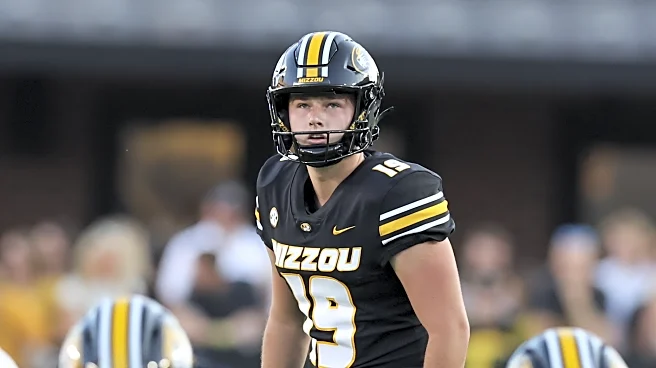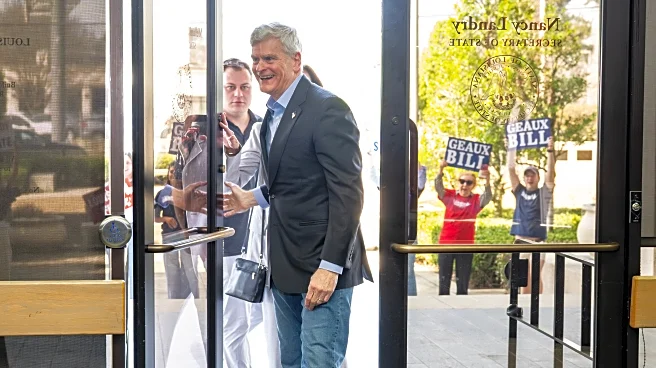Within minutes of the clock hitting zero and the publication of our first ‘Five Takeaways’ piece of the season, I could tell something was wrong:
I’m curious about Blake Craig’s injury status. That could
be a huge loss.
Drink says MRI tomorrow, this is a bigger loss than Horn. How is this not a Top 5 takeaway?
Blake Craig? The kicker? Injured? When did that happen? I did a quick scan of the box score and noticed that freshman Robert Meyer had kicked the final four extra points. Craig had exited the game in the second quarter. And amongst the hullaballoo of the Sam Horn injury, someone forgot to tell the SEC Network broadcasters (forgive me for not being on social media, the audacity.)
My mood, fairly pleasant after Mizzou’s dominant 61-6 win, quickly began to sour. Because as much of a bummer as it was to lose Sam Horn after one play, it’s not a game-changing injury, at least not yet. The Tigers still had the guy that was, in all likelihood, due to be the full-time starter. And he looked pretty damn good!
But losing Blake Craig? The guy that set the Mizzou freshman record for FG made in a single season? The Lou Groza nominee? The guy that booted a 55-yarder with ease earlier in the game? That’s… significant. And anyone who’s been watching Mizzou Football since Eli Drinkwitz took over can tell you why.
In Drinkwitz’s five seasons as Mizzou’s head coach, he’s had precisely two place kickers: Harris Mevis and Blake Craig. And despite their wildly different statures, the two have one thing in common. And that’s the bazooka each of them have in place of a right leg. Mevis prolific ability to sock the pigskin with his iron foot made for some of the most memorable moments of Drinkwitz’s early tenure. Craig’s burgeoning ability to send footballs rocketing through the night sky by the strength of his metatarsals promised more of the same.
Yet despite how much fun it is to watch a 20-year-old kick the ever-loving piss out of a small leather ball, it masks a fundamental flaw (in my opinion) of Eli Drinkwitz’s general approach to offense since he joined Mizzou. And that’s the generally… let’s say conservative way that Drinkwitz approaches fourth downs. In 2024 alone, Mizzou was in the bottom quarter of all Division I teams in fourth-down attempts for the season. That’s despite the fact that teams are generally successful more than half the time and that Mizzou runs an offense that is tailor-made to succeed in fourth-and-short situations. Especially now that they have a bruising runner behind center.
Yet Eli Drinkwitz has always been happy to let his — and now, Kirby Moore’s — efficiency machine plug away at standard downs before sending in his enforcer of a kicker to collect three points in areas where a fourth-down failure might be costly. And it’s sort of hard to blame him. After all, if you had the opportunity to watch Harrison Mevis blast a 57-yarder up close, would you say no?
But now the Tigers face a reality where they don’t have the type of kicker who they can rely on for the distance and accuracy they’re used to. Robert Meyer seems to have promise, but it’s a stretch to say he was brought in with the thought of supplanting a kicker who seemed on a one-way course to break Mizzou’s scoring record after his first year. With Drinkwitz saying that Craig’s injury is, “significant,” the likelihood is that the Eli Drinkwitz will be without his safety blanket for most of this season. And if Drinkwitz doesn’t want it to cost them wins, he needs to adapt.
Fortunately for him, none of his previous five teams have been built to endure this type of loss. On the offensive side of the ball, Drinkwitz and Moore have oodles of options to play with on creative fourth-down packages. If Ahmad Hardy doesn’t do it for you, have you considered a vintage Jamal Roberts coming to bulldoze opposing lines? Or if Beau Pribula’s legs feel too predictable, have you considered his extremely accurate short-distance passing game? Perhaps over the top to a Brett Norfleet or a quick out to the sure hands of Kevin Coleman or Speedy Johnson?
Mizzou’s defense, too, is built to withstand short fields that might come from missed attempts on fourth down. Corey Batoon’s HAVOC Generator is stocked to the nines with speedy EDGEs and athletic linebackers, with a secondary of ball-hawks waiting in the wings. The defense has the potential to be elite this year, and even if they aren’t, they’re certainly athletic enough to handle shorter rests between series.
Still, it won’t be enough to simply “go for it!” more often. Mizzou’s offense needs to shift the way it approaches drives. Drinkwitz’s game plan, predicated on methodical, efficient, safe drives that drive down the number of possessions, is all well and good when you can be sure you’re probably going to get points on most drives. But without a kicker who can hit from 50-plus, that approach suddenly becomes flaccid. Maybe playing some risker passes up the middle starts to look more tempting? Maybe the playbook looks a little less vanilla? It’s hard to say what approach Drinkwitz and Moore might take. But business is usual won’t cut it when your tried-and-true option on the sideline is wearing a knee brace.
More than likely, this column is all for naught. Craig’s injury probably suggests that Eli Drinkwitz will get more conservative when it comes to putting the ball in harm’s way, both on fourth downs and in general. We know he loves to win the turnover battle, and turnovers on downs don’t help you on that front. We’re probably likely to see more punts than we’re comfortable with over the course of the season. Fair warning!
But it’s hard to think that Mizzou isn’t positioned to deal with this unfortunate loss well. The roster, loaded with playmakers on both sides of the ball, could cater to a riskier, looser approach from the coaching staff. It might be worth giving a try once the vermin role into town this weekend.











